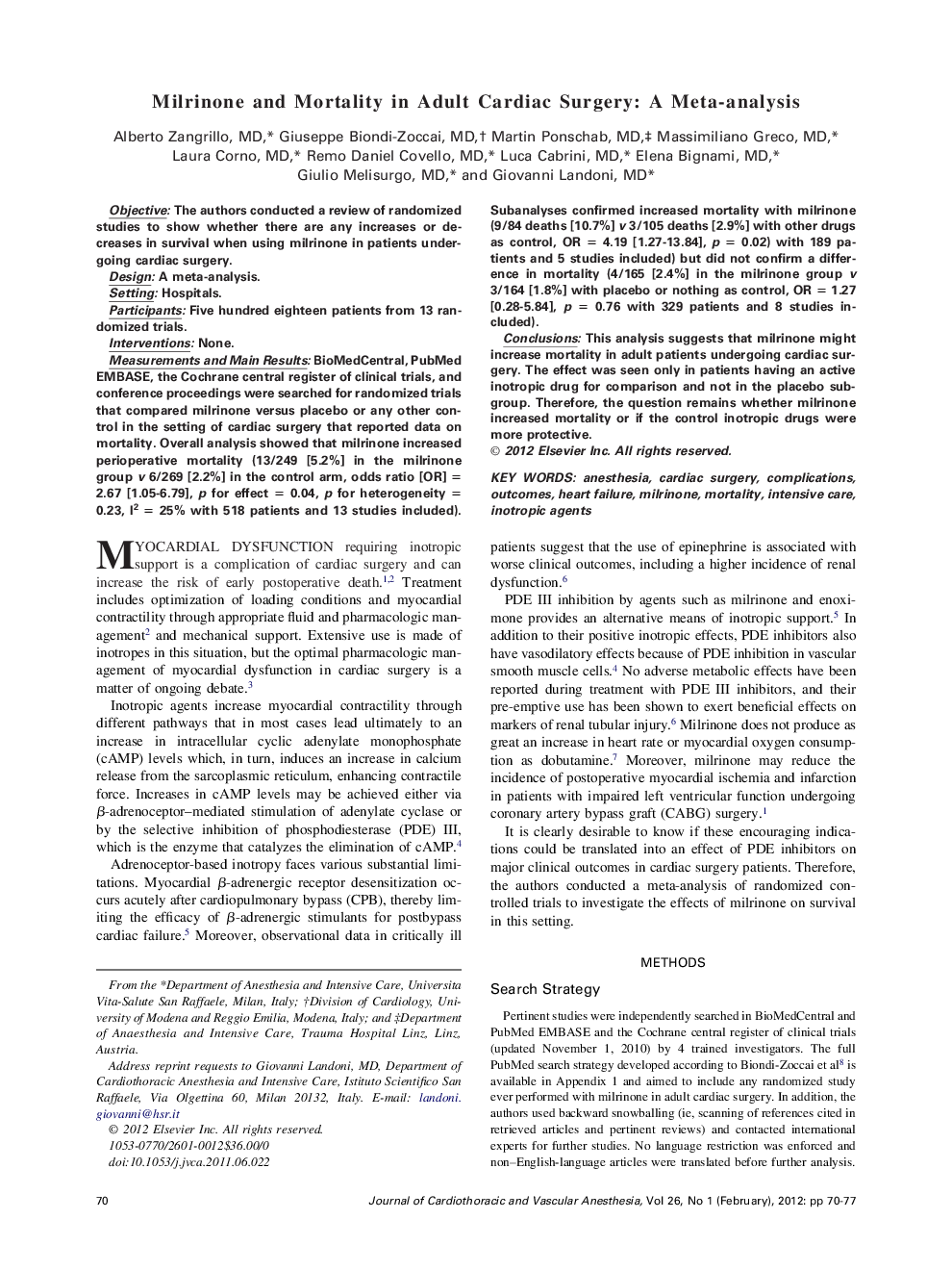| Article ID | Journal | Published Year | Pages | File Type |
|---|---|---|---|---|
| 2759617 | Journal of Cardiothoracic and Vascular Anesthesia | 2012 | 8 Pages |
ObjectiveThe authors conducted a review of randomized studies to show whether there are any increases or decreases in survival when using milrinone in patients undergoing cardiac surgery.DesignA meta-analysis.SettingHospitals.ParticipantsFive hundred eighteen patients from 13 randomized trials.InterventionsNone.Measurements and Main ResultsBioMedCentral, PubMed EMBASE, the Cochrane central register of clinical trials, and conference proceedings were searched for randomized trials that compared milrinone versus placebo or any other control in the setting of cardiac surgery that reported data on mortality. Overall analysis showed that milrinone increased perioperative mortality (13/249 [5.2%] in the milrinone group v 6/269 [2.2%] in the control arm, odds ratio [OR] = 2.67 [1.05-6.79], p for effect = 0.04, p for heterogeneity = 0.23, I2 = 25% with 518 patients and 13 studies included). Subanalyses confirmed increased mortality with milrinone (9/84 deaths [10.7%] v 3/105 deaths [2.9%] with other drugs as control, OR = 4.19 [1.27-13.84], p = 0.02) with 189 patients and 5 studies included) but did not confirm a difference in mortality (4/165 [2.4%] in the milrinone group v 3/164 [1.8%] with placebo or nothing as control, OR = 1.27 [0.28-5.84], p = 0.76 with 329 patients and 8 studies included).ConclusionsThis analysis suggests that milrinone might increase mortality in adult patients undergoing cardiac surgery. The effect was seen only in patients having an active inotropic drug for comparison and not in the placebo subgroup. Therefore, the question remains whether milrinone increased mortality or if the control inotropic drugs were more protective.
